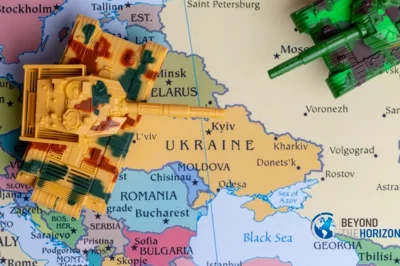Russia’s most recent invasion of Ukraine began two years ago, and it’s still unknown how the conflict will end. It doesn’t seem like the Russian military can take over Kyiv or a sizable chunk of the nation. After several months of victories, Ukrainian forces may continue to advance to retake land.
Another possibility is that the war will become more protracted, and neither side will be able to achieve a significant victory very soon. It is difficult to predict how the battle will ultimately turn out. But some critical implications for Russia’s ties with the U.S., Europe, and Ukraine have emerged. In addition to being a tragedy for Russia’s military, economy, and geopolitical standing, the conflict has also been disastrous for Ukraine and Ukrainians.
Russia’s military and prestige have suffered dramatically as a result of the war, which has also severely impacted the economy and drastically changed Moscow’s geopolitical landscape in Europe. It will make it difficult, if not impossible, to restore any semblance of normalcy in U.S.-Russian ties shortly.
Also Read: Pakistan’s Relationship with FATF and its Impact on the Country’s Economy and Foreign Policy
Russia’s Conflict with Ukraine
The current round of hostilities between Russia and Ukraine started on February 24, 2022, when Russian President Vladimir Putin gave the order for his troops to invade Ukraine in a large-scale, multifaceted manner.
The attack’s wide-ranging nature, which Putin described as a “special military operation,” implied that Moscow wanted to take control of Kyiv as soon as possible, removing the government and taking over as much as the eastern half or two-thirds of the nation. Although it progressed in southern Ukraine, the Russian army could not capture Kyiv.
Russian soldiers had withdrawn northward by the end of March. Moscow said its new goal was to take control of Donbas, which comprises the oblasts (regions) of Donetsk and Luhansk. In 2014 and 2015, Russian and Russian proxy troops had already taken control of almost 35% of this territory.
Nearly all of Luhansk was taken by Russian forces after three months of grueling fighting, but they made little headway in Donetsk, and in August, the front lines seemed to level off. The Ukrainian army conducted two counteroffensives in September. One in the northeast launched attacks into Luhansk oblast and drove Russian soldiers out of Kharkiv oblast.
Consequences for Russia
Military Damage: Russia’s military has experienced severe setbacks throughout the conflict. Despite their early aspirations, they encountered opposition in other areas and needed help to seize Kyiv. Russia’s military forces have shown flaws during the conflict, casting doubt on their potential.
Economic Disruption: Russia’s economy has been affected by the war. Trade restrictions, international sanctions, and the expense of sustaining military operations have all impacted. Foreign investment has decreased, inflation has increased, and the value of the Russian ruble has declined.
Russia is now politically isolated as a result of its actions. Russia’s ties with the U.S. have worsened due to sanctions imposed by European nations. Moscow’s belligerent actions have caused concern among nations.
Damaged Reputation: Russia’s standing internationally has been damaged by the invasion. Its hostility against a neighboring country and disdain for international rules have been widely denounced.
Future Prospectives:
New Offensives: There is a chance that both teams will go on the offensive, changing the territorial balance and carrying a significant risk of worsening.
Diplomatic Breakthrough: An unlikely but possible scenario, with international pressure potentially pushing both sides towards negotiations.
Protracted Conflict: The most likely scenario, with continued grinding warfare, further human suffering, and potential spillover effects.
As the conflict enters its third year, it is essential for all parties involved to seek a peaceful resolution through diplomatic means.At its core, the conflict represents a tragic loss for both Russia and Ukraine, with devastating consequences for the people caught in the crossfire. The ongoing violence has resulted in loss of life, displacement of civilians, and widespread destruction, leaving a lasting impact on the region.
Continued violence will only perpetuate suffering and instability, further deepening the wounds inflicted by war. The international community must remain engaged and committed to finding lasting peace and stability in Ukraine and the wider region.
** The opinions expressed in this article are solely those of the author and do not reflect the views or position of World Affairs Insider. The organization neither endorses nor takes responsibility for the content of this article and its accuracy.

I am Bushra Tahir. Doing BS in International Relations from National University Of Modern Languages ( NUML).







